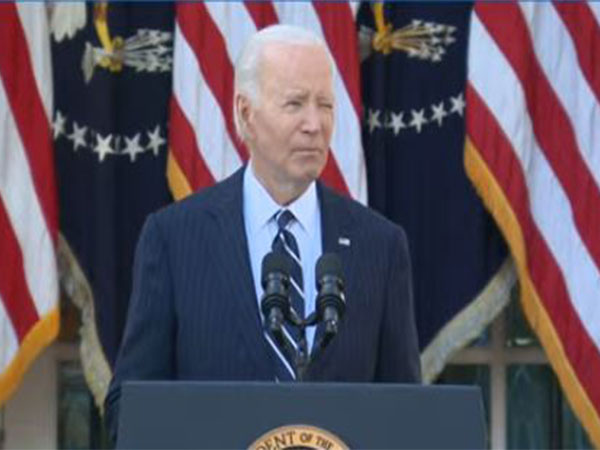Darjeeling (West Bengal) [India] , October 2 (ANI) : In protest against the tea garden management’s advisory for tea garden workers to accept 16 per cent bonus instead of twenty per cent , the tea garden workers observed a Chakkka jam movement in several places in the hills including Rohini area in Kurseong on Wednesday.
According to their trade union leader, “The workers are demanding 20 percent bonus.”
Notably, a fifth round of tripartite talks on the bonus issue ended without an agreement on Tuesday. The meeting was held at Siliguri’s Sramik Bhawan between worker unions, planters and state labour department.
A protester at the Chhaka Jam movement, Gracy Rai speaking to ANI said that, “the state government is not increasing the bonus for tea gardeners. Despite repeated demands of twenty per cent of their wages , the government is indifferent towards their demands.”
Surendra Tamang, trade union leader said, “The workers will continue their protest against the advisory of the state government and will not rest till their demand is met.”
Another trade union leader Bikram Rai also spoke to ANI and said that, “The protestors are hell bent on sticking to their demands. Our demands are genuine and we urge the government to listen to us. We will not back until the government fulfil our demands for enhanced bonus. We will intensify our agitation and force the government to comply.”
On October 1, 2024, the West Bengal government issued an advisory to tea garden managements to pay a 16 per cent bonus to workers in Darjeeling, Kurseong, and Kalimpong Hills. However, the workers’ unions remained unmoved and threatened to intensify their agitation.
The state government said that the 16 per cent bonus was an industry-wide settlement, and that disbursement had already begun in North Bengal.
The tea gardens in the hills had previously agreed to pay 8.33 per cent bonus, but workers in North Bengal were unwilling to accept less than 20 per cent. The management agreed to pay 13 per cent, but the unions remained firm.
The tea industry is a major economic driver for Darjeeling and North Bengal, with over 500,000 people directly or indirectly involved. (ANI)
Disclaimer: This story is auto-generated from a syndicated feed of ANI; only the image & headline may have been reworked by News Services Division of World News Network Inc Ltd and Palghar News and Pune News and World News
HINDI, MARATHI, GUJARATI, TAMIL, TELUGU, BENGALI, KANNADA, ORIYA, PUNJABI, URDU, MALAYALAM
For more details and packages
















